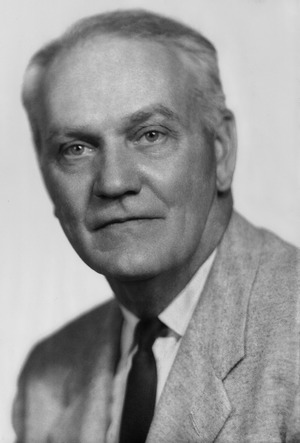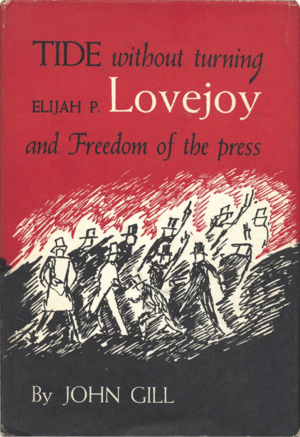John Glanville Gill facts for kids
Quick facts for kids
John Glanville Gill
|
|
|---|---|

John Glanville Gill, late 1960s
|
|
| Education | University of Wisconsin Union Theological Seminary Harvard University |
John Glanville Gill was an American Unitarian minister, a history expert, and a civil rights activist. This means he worked to make sure everyone had equal rights, no matter their race. In the mid-1940s, he lived and worked in Alton, Illinois. He was doing research for his advanced university paper, called a dissertation, about Elijah Parish Lovejoy. Lovejoy was a newspaper editor who fought against slavery. While in Alton, John Gill worked with other ministers. They tried to make public schools fair for everyone, raise awareness about unfair treatment based on race, and end segregation. Segregation was the practice of keeping Black and white people separate in schools and other public places.
Early Life and Education
John Glanville Gill was born in Louisville, Kentucky, on November 22, 1909. He went to the University of Wisconsin and earned a bachelor's degree. He also studied at Union Theological Seminary in New York City. Later, he earned a Ph.D. (a very high university degree) in history from Harvard University. His Ph.D. paper was about Elijah Parish Lovejoy. Lovejoy was killed in 1837 because he spoke out against slavery and for freedom of the press.
In 1944, John Gill moved to Alton, Illinois. He was studying history from before the American Civil War. He became the minister of the First Unitarian Church there. A hundred years before, Elijah Lovejoy had lived in Alton. Lovejoy started as a newspaper editor who wanted to hear "both sides" of an issue. But he became strongly against slavery and was eventually shot and killed while trying to protect his newspaper. Just like Lovejoy, John Gill's time in Alton changed him. He went from being a university scholar to someone actively fighting for civil rights.
Fighting for Fairness in Alton
After World War II, many towns in Illinois, including Alton, did not follow state law. They kept public schools separate for Black and white children below high school level. This was called segregation. In daily life, African Americans faced unfair treatment in many ways. For example, they had to sit in the balcony at movie theaters. They were not allowed to try on clothes in downtown stores before buying them. They also could not eat at the lunch counter of Kresge's Variety Store.
John Gill believed these unfair rules were wrong. He started discussion groups to help improve how people of different races got along. In 1946, he gave the main speech at the 18th annual Lincoln-Douglas Dinner. Gill thought that Alton's ministers could really help change the community. He joined the Alton Council of Churches. This group held a yearly training program for religious leaders at Shurtleff College. Gill was in charge of this program in 1947.
In 1950, John Gill led civil rights activists in Alton to challenge the segregated schools. They tried to enroll 175 African-American children into five all-white elementary schools and two all-white junior high schools. Gill organized other ministers to help watch over the children and keep them safe during this protest. Some local people who supported segregation became very angry. They staged Ku Klux Klan cross burnings in Salu and Riverfront parks. Gill was not scared. He spoke out against school segregation from his church's pulpit. He was one of eighteen ministers who signed a statement against racism. This statement was published in The Alton Telegraph newspaper.
Carrying on a Legacy
In 1947, John Gill earned his Ph.D. from Harvard. His paper was titled "The Issues Involved in the Death of the Rev. Elijah P. Lovejoy, Alton, 1837." He later turned this work into a book called Tide Without Turning: Elijah P. Lovejoy and Freedom of the Press (published in 1958). This was the first book written about Lovejoy's life.
After Gill's activism and the protests against his efforts to integrate schools, some members of the First Unitarian Church in Alton felt he was too controversial. In 1950, they held a meeting and voted not to renew his contract as minister. The vote was 46 to 25. Alton's fight against segregation and Gill's dismissal were even written about in the January 22, 1951, issue of Time magazine.
Almost 50 years later, another Lovejoy expert, Reverend Robert Tabscott, organized a special event to honor John Gill. It was held on February 20, 1995, at the First Unitarian Church of Alton. This event was meant to make up for Gill's unfair dismissal so many years before.
The Alton Telegraph newspaper reviewed Gill's book. They wrote that while other authors like Merton Dillon and Paul Simon wrote books about Lovejoy later, Gill's Tide Without Turning is still the most important book about the newspaper editor who was killed. They said that only Gill, who also faced unfair treatment while fighting for dignity and freedom, could have written such a book.
John Gill died on October 23, 1979, in Washington, D.C.
 | Janet Taylor Pickett |
 | Synthia Saint James |
 | Howardena Pindell |
 | Faith Ringgold |


